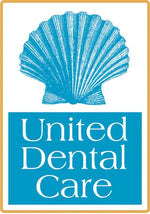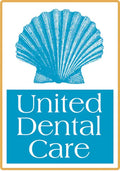Personal Dental Memberships: Your Comprehensive Guide
Let's face it. The cost of dental care and dental insurance can be a significant roadblock to receiving optimal oral health.
In fact, over 50% of Americans postpone seeking dental treatment primarily due to financial constraints.
According to a study by the University of Chicago Illinois, approximately 74 million Americans don’t have dental insurance coverage, accounting for nearly one-quarter (23%) of the population, surpassing the proportion of individuals without health insurance by more than twice as much.
It means that a substantial portion of the population may face barriers to accessing regular dental check-ups, preventive care, and necessary treatments.
This lack of coverage can result in delayed or neglected dental care, potentially leading to oral health issues becoming more severe and costly to treat when they are eventually addressed.
Fortunately, patients and their families can now pay a regular fee to the dental office for benefits like reduced treatment costs, routine check-ups, cleanings, and dental service discounts.
And that’s by signing up for a personal membership or an in-house dental membership plan.

What is a personal membership plan?
A personal dental membership or in-house membership plan provides a comprehensive range of benefits for a monthly fixed fee and a one-time activation fee.
For example, United Dental Care offers an exclusive dental membership program covering a wide range of preventive care treatments, such as:
- Regular check-ups
- Scheduled cleanings
- Fluoride treatments
- Periodontal screenings
- Needed x-rays
- Emergency dental exams
This preventive care membership also allows patients to receive specific discounts on treatments typically covered by dental insurance.
For instance, if you're enrolled in United Dental Care's dental membership plan, you're entitled to:
- A 50% discount on periodontal maintenance
- 25% off on dental fillings, tooth extractions, inlays or onlays, root canal, and dental crowns
- A 15% discount on dental implants
Dental membership plans cater to various needs, offering different types of memberships, including:
- Individual plans - Tailored for single individuals, providing benefits and coverage for their dental needs.
- Family plans - Designed to cover dental care for the entire family, including spouses and children.
- Senior plans - Focused on the dental needs of senior citizens, often offering specialized care and discounts relevant to their age group.
These diverse membership options allow individuals and families to choose the plan that suits their dental care requirements.
Personal membership vs. dental insurance
Dental membership plans vary from dental insurance in several ways. For individuals seeking affordability, simplicity, and quick access to preventive care, it's crucial to keep these differences in mind:
Payment structure
While personal memberships and dental insurance require monthly or annual fees, the payment structure differs.
A personal membership program often comes with no deductibles and annual maximums, which are often present in dental insurance.
In dental benefits, maximums refer to the "maximum benefit" or the highest amount of money a plan will pay for your dental care within a year or "benefit period." Once you hit this limit, the program won't cover any more dental treatment for that year.
Deductibles, on the other hand, are the initial amount you must pay out of pocket for dental services before the dental membership plan starts covering the costs.
Once you meet your deductible, the plan begins to pay some of the expenses for covered services.
A dental membership plan may or may not have deductibles; if they do, they tend to be lower and more straightforward than those found in traditional insurance plans. In some cases, certain services may not have a deductible, allowing immediate coverage.
For dental coverage, the insured individual and the insurance company often share costs.
Coverage
When it comes to coverage, a personal membership covers a predefined set of services, such as regular check-ups, cleanings, and discounts on specific treatments. This means you know the treatment you will receive in exchange for payment.
In contrast, dental insurance covers a broader range of dental procedures but often comes with waiting periods, exclusions, and limitations.
In dental insurance, a waiting period is when newly enrolled members are not eligible for coverage of primary oral care (e.g., tooth extractions, fillings, and spacers) or major dental services (e.g., oral surgery, dentures, and crowns).
Treatment focus
With personal membership, the emphasis is on preventive care and early intervention to keep your oral health in check and prevent dental issues. However, dental insurance provides coverage for preventive and restorative care, addressing existing dental problems.
Claim process
Have you encountered difficulties when dealing with dental insurance and reimbursement claims? It can be annoying.
In the case of personal membership, you typically won't have to go through the hassle of filing claims, as benefits are usually directly applied at the dental office.
Cost transparency
You typically get transparent pricing with a personal membership, which means fewer unexpected costs because you know what you're paying for upfront.
For instance, United Dental Care offers its patients a monthly preventive care membership for just $39 and a one-time $99 Lifetime activation fee.
Dental insurance can be more complex, featuring different coverage levels, copayments, and deductibles, potentially resulting in uncertainties about the final costs.

Choosing the right dental membership plan
Individual dental practices or clinics typically offer personal or in-house dental memberships. These memberships are designed to provide benefits to their new and loyal patients who receive dental services at that practice.
Therefore, it's important to remember that some membership plans are different. It can vary from one practice to another. Dental clinics can also differ significantly in their personal membership plans, as they can tailor them to their patient's needs.
So, if you're on the hunt for the perfect membership program, don't hesitate to inquire with your dental provider about the following:
Scope of services
Some dental service providers may focus on basic preventive care like cleanings and exams. In contrast, others may include a more extensive range of treatments such as fillings, crowns, and even orthodontic services.
Customization options
Ask your dentist if you can customize your membership plan to some extent. Sometimes, patients can choose the services they want to include, making the plan more personalized and cost-effective.
Family coverage
Some clinics offer family membership plans that cover multiple family members under a single fee, while others may require individual memberships for each family member.
Knowing whether your selected clinic offers family membership plans or requires individual memberships is essential for your family members to make cost-effective and practical choices for your family's oral health. It also simplifies both budgeting and administrative aspects of your dental coverage.
Discount levels
This is important for you to know because it helps you gauge the overall value of the membership plan and tailor your choice based on your anticipated dental needs.
Understanding whether the plan offers broad discounts or specializes in specific procedures can guide you in selecting a program that aligns with your specific oral health requirements and budget.
For instance, for someone primarily needing specific procedures like orthodontic work, choosing a plan that doesn't focus on providing discounts for those particular treatments could lead to higher costs.
Mode of payment
Patients often need to pay more attention to the importance of choosing a suitable mode of payment for their monthly membership fees.
Whether through cash or a credit card, picking the proper payment method ensures you can comfortably meet your membership obligations and access the dental services you need.
For instance, United Dental Care offers financing options for qualified patients with Sunbit or CareCredit to provide a flexible financing option (pay-over-time) allowing customers to spread the cost of their purchases over a specified period, typically through a series of installment payments.
To avoid unnecessary financial stress, don't hesitate to communicate with your dental clinic about the payment options they accept, ensuring a smooth and convenient experience.
Enrollment accessibility
For those who value online convenience, clinics with user-friendly online enrollment may be preferable. In contrast, others who prefer a more personal touch may opt for plans that require in-person visits.
Clarity on the enrollment process ensures a smoother transition into the membership and a positive experience from the outset.
Dental membership plan in Culver City
In the digital age, online registrations have streamlined the administrative aspects of a personal dental membership plan. This has allowed dental offices to focus on what matters most – providing top-notch dental services to their patients.
Instead of dealing with insurers and their dreaded waiting periods, you have a choice to make things more convenient.
So, if you're searching for a dental membership plan to maximize your dental benefits without breaking the bank, reach us at United Dental Care.
Become a member to experience hassle-free, patient-centered dental care that exceeds your expectations.




 By:
By: 

